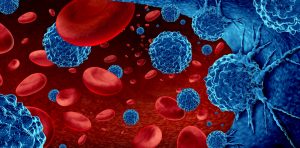
NICE signs-off Roche’s Gazyvaro for leukaemia
pharmafile | June 2, 2015 | News story | Sales and Marketing | Allergan, Bayer, CLL, Carole Longson, Eylea, Gazyvaro, NICE, Ozurdex, Roche, diabetic macular edema, leukaemia
NICE has given positive final guidance backing the use of Roche’s Gazyvaro for people with chronic lymphocytic leukaemia (CLL).
Earlier this year the healthcare guidance body indicated it would recommend Gazyvaro (obinutuzumab) in draft guidance, and it has confirmed its decision in the latest final guidance.
It comes ten months after Roche earned approval for Gazyvaro from the European Union, and the company was also the first drug to earn breakthrough therapy designation from the FDA.
In clinical trials Gazyvaro has increased patients’ remission time by more than 18 months and extended the time until another course of treatment was needed by over two years, compared with those receiving the current standard chemotherapy alone
Gazyvaro is a targeted therapy that works by launching a two pronged attack on cancer cells: it works by causing ‘enemy’ cells to self-destruct and harnesses the body’s immune system to remove the cell.
Professor John Gribben, professor of medical oncology at the Barts Cancer Institute in London says patients with CLL often have other illnesses that present unmet medical needs.
“The approval of Gazyvaro today means that clinicians will have a new option for their patients that is effective with manageable tolerability,” he says. “The priority now is to ensure that local commissioners act promptly to make funding available, so that patients can access this treatment as soon as possible.”
At this year’s American Society for Clinical Oncology meeting Roche presented data to highlight the potential of Gazyvaro in people with indolent non-Hodgkin lymphoma.
The data from the Phase III GADOLIN study found that Gazyvaro, in combination with bendamustine chemotherapy, reduced the risk of the cancer became worsening or death by 45% compared to chemotherapy alone. Roche will now submit data from the study to the EMA for consideration.
NICE also provisionally recommend Bayer’s Eylea (aflibercept solution for injection) and Allergan’s Ozurdex (dexamethasone intravitreal implant) as possible treatment options for some people with diabetic macular oedema.
Professor Carole Longson, director of the Health Technology Evaluation Centre says: “NICE is pleased to give the green light to both dexamethasone intravitreal implant and aflibercept as treatment options for some people with diabetic macular oedema in final draft guidance.
“The condition affects around 189,000 people with diabetes in the UK, and can have a substantial negative impact on quality of life and daily activities. These decisions will therefore be welcome news to both patients and healthcare professionals alike.”
Lilian Anekwe
Related Content

Roche’s Alecensa approved by FDA as lung cancer treatment
Roche has announced that the US Food and Drug Administration (FDA) has approved Alecensa (alectinib) …

Genentech’s Columbi meets primary endpoint in phase 3 trial for lymphoma treatment
Genentech, part of the Roche Group, has announced that its phase 3 STARGLO trial has …

NICE recommends migraine treatment for NHS use
The National Institute for Health and Care Excellence (NICE) has shared draft guidance recommending AbbVie’s …







